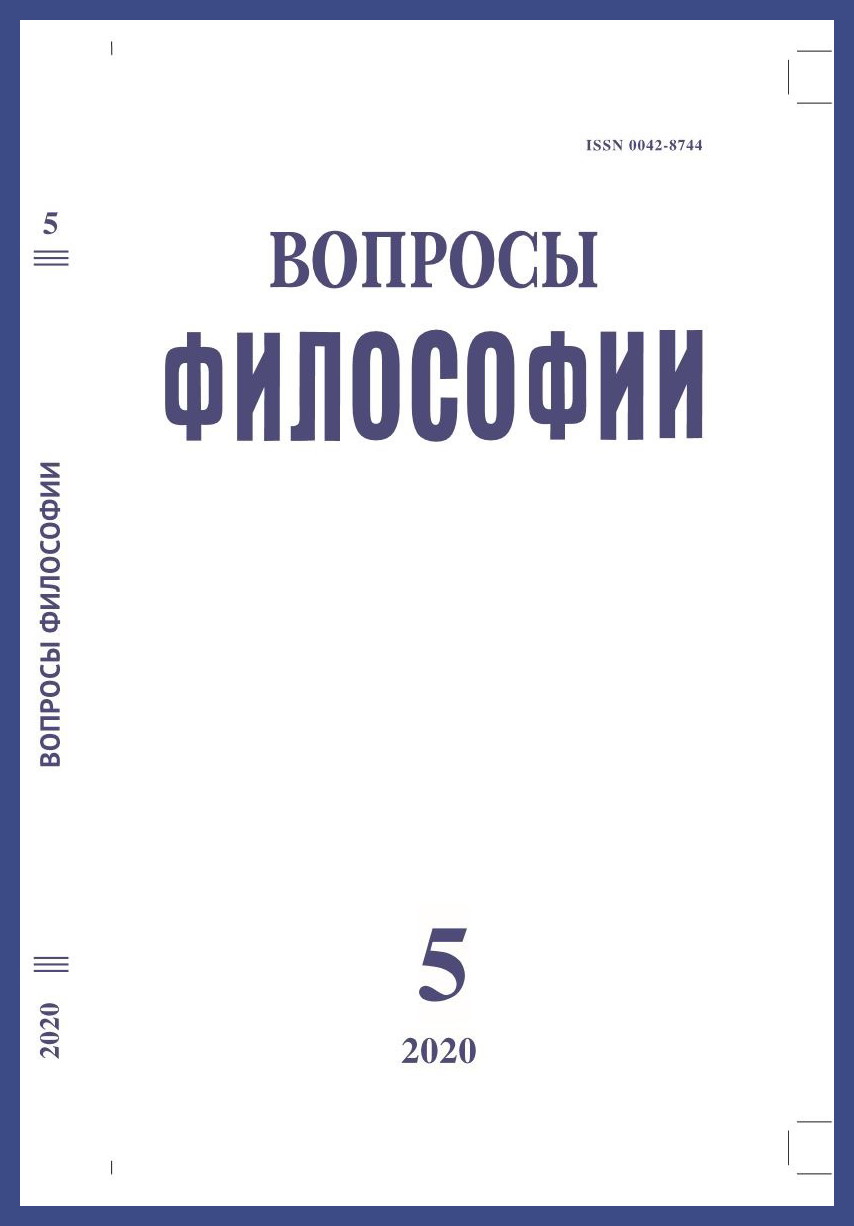Russian cosmism in the interpretation of modern Western philosophy (to the 190th anniversary of the birth of N.F. Fyodorov)
DOI:
https://doi.org/10.21146/0042-8744-2020-5-150-159Keywords:
Nikolai Fyodorov, M. Hagemeystkr, G. Young, B. Groys, russian cosmism, western philosophy, Chaos, Cosmos, futureAbstract
The article explores the diversity of assessments of the ideas of Russian cosmism, in particular the teachings of N.F. Fyodorova in modern Western philosophy – in the works of Michael Hagemeister, George Young, and Boris Groys. Attention is drawn to the growing popularity of these ideas in the West, which is due to the growing awareness of threats to the well-being of the Earth and humanity, manifested both in the scale of environmental problems and in the qualitative transformation of weapons of the world's leading States. Today we are in the situation that the Russian cosmologists foresaw a century and a half ago, who put forward a number of ideas aimed at building a positive future for earthlings – a highly spiritual human life on the scale of the Earth and Space. The purpose of the study is to compare the provisions of a number of philosophical concepts of Russian cosmism and the assessment of its ideas by Western philosophy with the identification of points of contact between humanitarian and natural knowledge in the space of universal human values to confirm the dominant role of the moral component of Russian cosmism. The novelty of this study is to determine the attitude of modern Western culture to the ideas of Russian cosmism: its reception both in scientific circles and by the public.

